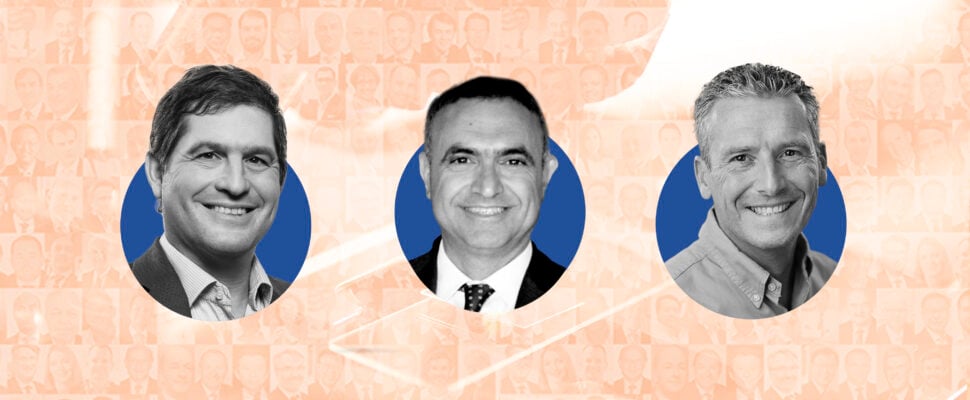There have been both ups and downs in AbbVie’s recent history. After proving its staying power with the celebration of its 10-year anniversary as an independent company spun off from Abbott, the American drugmaker faced a less happy turning point as its leading drug Humira came up against stiff competition in the US from an Amgen-developed biosimilar. AbbVie country and regional managers PharmaBoardroom has interviewed in recent months across the company’s diverse geographies share the concerns and successes of their markets.
Belgium: Access Challenges
20-year AbbVie veteran Renaud Decroix, GM for Belgium & Luxembourg, came back to his home country, Belgium, after several years abroad. “As a country, we have an extraordinary healthcare community, and as soon as an innovative product is available, the scientific community is quick to adopt it,” he says.

The way in which innovation is recognized and evaluated [in Belgium] has not improved in recent years. From my point of view, this is clearly an area for improvement
Renaud Decroix, AbbVie BeLux
However, for Decroix one of the main concerns in Belgium is access. “Only 50 percent of innovations reach patients,” he complains. “The way in which innovation is recognized and evaluated has not improved in recent years. From my point of view, this is clearly an area for improvement.”
Decroix feels there should be more collaboration amongst healthcare stakeholders, a process that was to some degree launched by the government’s new medicines roadmap. “I plead for an open discussion that respects everyone’s realities. We all want the same thing: to have a positive impact on a patient’s life. Let’s find solutions together. Discussion, leaving one’s own certainties aside and finding the famous “Belgian compromise”, is the way forward,” he asserts.
LatAm: Healthcare Taking Centre Stage
As VP of Latin America, Flavio Devoto has witnessed a positive shift in the perception of healthcare in the LatAm region and the policy making surrounding it. “Post-pandemic, healthcare has been put at the centre of policy and societal debates and there is a greater dedication to ensuring health across the board as well as more robust stakeholder alignment, from patients, medical societies, to policymakers.”

Many countries – such as Brazil – have enshrined healthcare as a right in their constitutions
Flavio Devoto, AbbVie LatAm
In Devoto’s view there has been much improvement with respect to access. “LatAm has improved a lot in terms of access over the past 20-30 years and many countries – such as Brazil – have enshrined healthcare as a right in their constitutions.”
Nonetheless, across the vast region he is responsible for, no two countries are the same. “Healthcare systems and the roles played by the public and private sectors differ significantly between countries in the region, creating varying challenges.” And, as Devoto points out, “many patients in LatAm still must wait a long time to receive the proper diagnosis and access innovation post-approval.”
“Ultimately, our industry has a long-term view and the ability to ride out the shorter-term challenges and, on a company level, I am very excited to increase our presence in LatAm,” he concludes.
Egypt: The Talent Factor
For Ali Sleiman, GM for Egypt & Levant, beyond new product launches, improved distribution networks and the country’s favourable healthcare reforms, a key component of AbbVie’s stellar growth in Egypt is talent. “A critical and equally important driver of growth is the team we have put in place in Egypt,” he affirms.

We became one of the few pharma companies in Egypt to be certified as a “Great Place to Work” and this has attracted more talent
Ali Sleiman, AbbVie Egypt
Expanding the local workforce and building engaged and diversified teams across AbbVie’s local businesses has paid off, says Sleiman. “AbbVie became one of the best employers in the countries we operate in. In fact, we became one of the few pharma companies in Egypt to be certified as a “Great Place to Work” and this has attracted more talent.”
Sleiman believes these efforts will draw Egyptians working in other countries back to Egypt. “During my tenure in India, there was a lot of talk about reverse migration. Indian professionals were coming back to contribute to the growth and progress of their country. We are seeing the same currently playing out in Egypt [with] many Egyptians coming back from the Gulf countries with highly valuable international experiences.”
The GM offers his own career path as an example. “Even myself, I have come back to the region after being in Asia for some years which attests to how attractive the market has become and its potential for career development and growth.”



